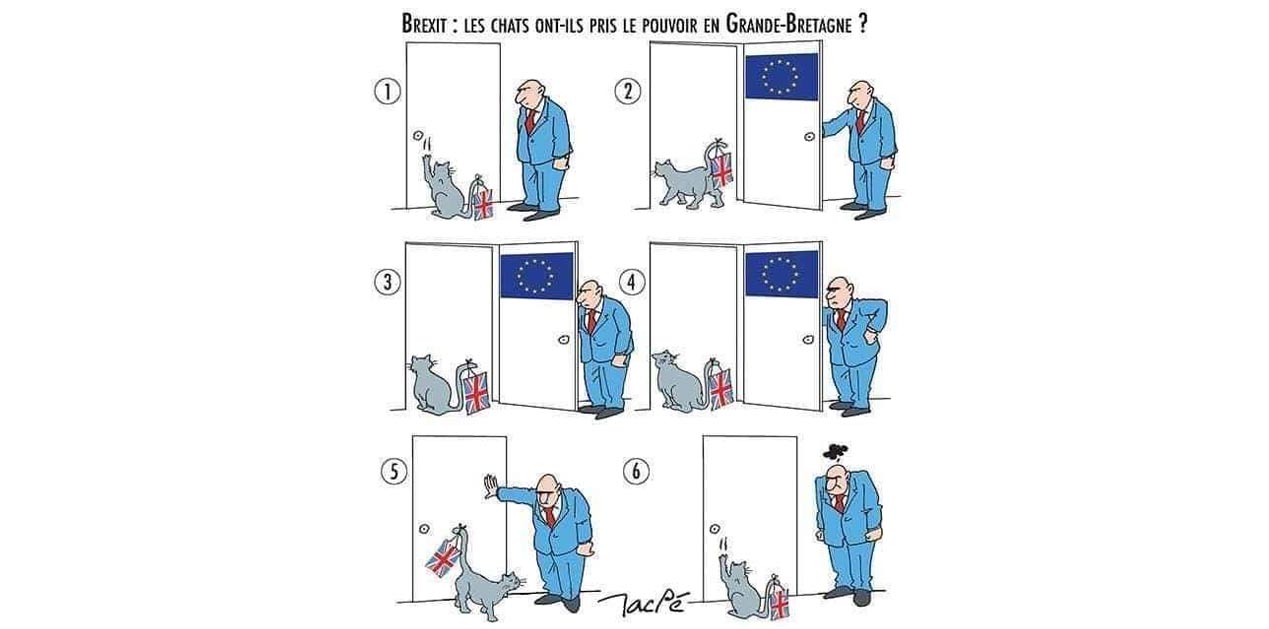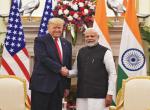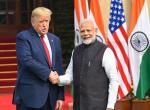The European Union (EU) has been labouring hard to prove that it is serious about carrying more political heft in the world. Statements emanating from Brussels have made all the right noises in this direction. However, it seems that the usual pulls and pushes of managing a 28 country block is sapping all of the EU’s energy and delaying its advent on the international geopolitical stage. Moreover, the EU lacks hard power and it looks increasingly unlikely that it will acquire the same in the near future.
On the 26th of July, the United Kingdom (UK) had asked for a Europe led maritime mission to protect international shipping in the Persian Gulf. It received support from some countries of the EU in this endeavour. But, the delay in decision-making, together with change in government in London, has eventually led the UK to join the United States (US) naval mission in the Gulf. Britain’s decision to support the US, instead of waiting for a European coalition to build up, has also come as a shot in the arm for President Donald Trump, who has been frequently accused of unilateralism.
The Persian Gulf has been in turmoil since President Trump withdrew his sanctions waiver for eight countries to import oil from Iran earlier this year. These countries, particularly China and India, were the largest buyers of Iranian crude. Thereafter, in May, and again in June, oil tankers were attacked in the Persian Gulf region near the Strait of Hormuz by unknown assailants. The attacks led to a crisis of confidence in the world economy as the Strait of Hormuz is a vital maritime lifeline seeing one fifth of the world’s oil traverse through it every day. In July, Iran captured a British oil tanker in the waterway, ostensibly, in retaliation for Britain detaining an Iranian tanker in Gibraltar two weeks earlier. This prompted the UK to ask for a European naval coalition to ensure safe shipping in the Persian Gulf. India has also deployed two naval ships in the region to protect its shipping.
The world was amused at the UK requesting a joint European naval mission at a time when it was seeking to break away from the EU. Notwithstanding the Brexit pandemonium, London received support from Italy, France and Denmark for the proposal. The other countries though were lukewarm to the idea. Germany, the largest economy and the most populous state in Europe preferred to stay aloof. The German foreign minister stated that Berlin wanted to get “a clear idea of what such a mission would look like” before committing to it. Earlier, it had also turned down an American request to supply naval ships for the security of maritime shipping in the Persian Gulf. Sweden and Finland were also contacted by the UK foreign office. Their response is unknown.
In the meantime, power changed hands in London and pro-US conservative leader Boris Johnson became the new Prime Minister of the UK. The new government has not entirely abandoned its Europe policy despite having joined the US led naval mission in the Persian Gulf. It maintains that its aim is to build as large a coalition as possible. However, this is directly in contrast to the position stated by both Germany and France. Paris was of the view that “the mission would be the opposite of the American initiative”. Berlin had stated that the “European mission must be recognisably European”. In this backdrop, the statements emanating from the foreign ministry in London seem more of diplomatic nicety than real politics.
The other issue of relevance here is whether Europe actually has the capability to launch a Naval mission on its own without American backing, or any other significant military mission for that matter. In December last year, Der Spiegel reported that only four out of 128 German fighter planes in its Air Force were combat ready. This may have been an exaggeration. However, it is general knowledge that Europe’s military forces are in a dilapidated state and its capability to manage armed missions is extremely limited.
Even European leaders admit this. Some do so publicly while others in hushed tones. During a discussion in the House of Commons on the maritime mission issue, conservative leader Duncan Smith, a close ally of Prime Minister Johnson, was caught on the microphone saying that the Americans “are the only ones that have got any assets”. The architect of the idea, foreign minister of the UK, Jeremy Hunt, himself stated that any such mission would have to act in partnership with the American Navy, “We would not ... seek to exclude the American navy because they have a vital role for example in the refuelling of our own ships, the communication system, the command and control system, and indeed intelligence support. So we would always operate in partnership.”
European leaders have made grand proclamations of intra-European unity and conviction in recent times. The goals include foreign policy coordination, building of a European army and a defence industry base etc. In December 2017, the EU had set up the Permanent Structured Cooperation (PESCO). The objective was to deepen defence cooperation among member states and to develop European military capabilities. PESCO was declared a landmark agreement which would create European capabilities independent of the United States of America. However, the progress has been extremely slow. All the 34 projects under PESCO remain at incubation stage as of date. This is par for the course for the EU though. In late 1990s , the EU had set up the European Security and Defence Policy (ESDP) with similar lofty goals. ESDP itself was part of the Common Foreign and Security Policy (CFSP). The stark truth is that, the acronyms invented by the EU are far greater in number than the progress achieved by them.
With the UK set to leave the EU on October 31st, the EU will lose even more military capability. On the other hand, the US gets back an important ally at a time it is seeking to counter both Russia and China, which it has called revisionist powers in its defence strategy report in 2018.
The incoming administration in Brussels under the former German Defence Minister, Ursula von der Leyen, is expected to provide new vigour to both the EU’s foreign and security policy. However, this is easier said than done. The EU has divided leadership, poor military capabilities and a pacifist population. This is in stark contrast to the US which ticks all these boxes. Any change in the EU’s global outlook and capabilities therefore remains distant, irrespective of the ambitions of the new leaders at the helm. The EU will therefore remain a political pygmy in the unfolding geopolitical landscape. It simply lacks the muscle to match its vision. The euphoria which followed a French warship sailing through the Taiwan Strait therefore ought to be temporary. The US will remain the sole arbiter of hard power in the oceans and hotspots around the world. The European countries will continue to contribute to American power in auxiliary roles in the near future.
This is not to say that India must not engage with the new leadership in Brussels. The EU will retain immense diplomatic and economic weight in the world. At the same time, its attempts to strengthen its own military capabilities under PESCO is an opportunity for India. New Delhi is striving to build a defence industry of its own under the Prime Minister’s Make in India initiative. To achieve this, the country has been trying to plug itself into the US defence supply chain with some success.
Europe matches the US in its technological capabilities. Therefore, India should look to diversify its options and cooperate with the European defence manufacturing sector the same way it is trying to do with the US. This will require vigorous diplomacy and energetic exchanges between the two sides. India will also have to ensure that the European companies’ concerns regarding offshore manufacturing are addressed. Indian diplomats must stress on the country’s democratic credentials, its non-adversarial nature towards the EU and economic opportunities in India to encourage greater engagement between the countries. With the UK signing up to the US naval mission in the Persian Gulf, it is certainly advantage Trump right now.
(The paper is the author’s individual scholastic articulation. The author certifies that the article/paper is original in content, unpublished and it has not been submitted for publication/web upload elsewhere, and that the facts and figures quoted are duly referenced, as needed, and are believed to be correct). (The paper does not necessarily represent the organisational stance... More >>
Image Source: https://i.redd.it/p6rugetxylp21.jpg











Post new comment